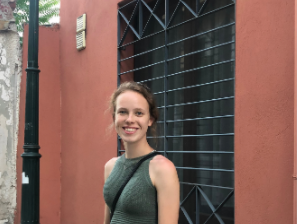“You Don’t Care” student podcast to debut next week
November 2, 2018
If one is looking for a way to better connect with Case Western Reserve University and the greater community, “You Don’t Care (YDC),” dubbed the podcast of the people, may be the place to start. The new podcast, hosted by fourth-year student Sai Supriya Vuda, will make its debut on the morning of Tuesday, Nov. 6.
The show “won’t just be interviews,” says Vuda, “[it will include] episodes of people, music and the time they lived in.” YDC will feature a different student, faculty, staff or community member every two weeks in an effort to communicate and appreciate the complexity of the individual.
Vuda was personally inspired to start YDC from her own experiences as an immigrant. “I hear these stories and rhetoric about immigrants being lazy, dirty and all these different things, [which] to me [says] you don’t care about my story, you never even cared to ask.”
Also pleading guilty to such actions, Vuda said, “I’ve never asked someone, so you don’t care and I don’t care, so where can we find this area where we can all care?” The answer to that question is in the YDC podcast. “[YDC] is my way to communicate that everyone is incredibly complex and their stories can help us realize that people cannot be reduced to one stance.”
Her first guest will be Diana Driscoll, Ph.D., a physics instructor and Undergraduate Lab Director.
Driscoll was born in Communist Romania and fled to Germany, living there for over two years as a refugee before coming to the United States. Her life as an immigrant, as well as her perspective on the current climate surrounding immigration, will be addressed further in the first episode of YDC.
She said, “Students don’t think faculty members went through what students are going through; they think faculty members were born faculty members, but everyone has a background. Everyone has a past and a life that they struggled through.”
Driscoll, who, like Vuda, strongly identifies as an introvert, thinks this podcast could be a great way for people, especially introverts, to learn more about other people around them.
“It is possible that you hear something in a podcast that is something that is happening in your life or resonates with you and then you feel more comfortable talking to that one person.” Driscoll went on to suggest, “If you see [that] someone is down, you can start a conversation. Everyone struggles with something at some point, [just as] everyone is happy at some point.”
Starting a conversation is precisely what Vuda hopes YDC inspires in listeners. Referencing the regular scene of a Starbucks coffee line in which 10 people uniformly stare down at their phone while waiting for an order, Vuda noted, “Sometimes it’s okay to just strike up a conversation instead of being on Instagram. Sometimes it’s okay to make a comment in an attempt to connect with people around you.”
Everyone has a story, but not everyone listens. Vuda and Driscoll both propose, while it will inevitably be difficult, to brave having real conversations.
“In an elevator, instead of just being on [our] phones, find something to connect with,” said Vuda. “Don’t talk about the weather, don’t talk about how long the elevator ride is, [talk about] something substantial.”
In a world of seemingly strong hate and division, our actions can have a lasting effect. Social media, a very common communication platform for many of us, can quickly turn toxic due to its impersonal structure.
According to Vuda, “[The] strategy is to keep things local and forget about the likes and dislikes. [Instead], offer care to another person that you don’t really know. Be genuinely interested and empathetic, not reducing people to one thing.”
Listeners can tune into the podcast on its website, ydcpodcast.com, or through any podcast streaming service, including Apple Podcasts, Spotify, Stitcher Radio or Google Podcasts. Tune in next Tuesday, Nov. 6 for the first episode, or listen to its introduction and overview trailer by Vuda now.



